Yummy!
_____________________
"Gambling footprint expanding in Florida under Gov. Rick Scott"
TALLAHASSEE — Days after a judge ruled last month that the barrel races held at a fledgling North Florida racino were not a legitimate parimutuel sport, state regulators crafted a license, the first of its kind, to allow "flag-drop" races to replace them.
In the past two years, the same regulators have allowed slot machine operators to run electronic roulette and craps games in Miami-Dade and Broward counties, allowed a dormant jai alai permit to be used to expand the number of slot machines at Magic City Casino, and allowed Tampa Bay Downs and Gulfstream racetrack in Hallandale Beach to run a one-time race in June so they could offer thoroughbred races via simulcast year-round.
These are just a handful of decisions by state regulators that have effectively expanded the gambling footprint in Florida under Gov. Rick Scott.
"There are a couple of clever lawyers out there and we're seeing a lot of strange decisions,'' Kent Stirling, executive director of the Florida Horsemen's Benevolent and Protective Association, told the Times/Herald. "If the law doesn't specifically say no, the answer from the department seems to be, always, yes."
The rulings have not gone without notice by top legislative leaders, who ordered up a comprehensive study of gambling in Florida. They say they want the debate to include the loophole-driven expansion of gambling, as well as a discussion about whether to authorize destination resort casinos being pushed by the world's gambling giants.
Today, legislators will receive the first of a two-part, $388,000 study from Spectrum Gaming Group, a New Jersey-based expert in gambling analysis. The second part will come in October, and legislators expect to recommend changes in March that could include whether to approve destination gambling.
"It behooves the Legislature to walk through all the statutes very deliberately with the goal of possibly rewriting those statutes to add clarification,'' said Sen. Garrett Richter, R-Naples, chairman of the Senate Gaming Committee that will conduct the review next session.
Sen. John Thrasher, R-St. Augustine, a veteran of the gambling law fight who once lobbied on behalf of the Jacksonville greyhound track, believes the Legislature's failure to reform its gambling laws has led to the inadvertent expansion of gambling.
"There are people who are looking at loopholes and these things expand gambling,'' he said. "I'm for closing loopholes. I'm not for expanding gambling in Florida.''
Lawyers at the Florida Department of Business and Professional Regulation's Division of Pari-Mutuel Wagering wouldn't comment Friday when asked about the pattern of rulings.
"DBPR is a regulatory agency that implements the laws created by the Legislature,'' said Ronnie Whitaker, DBPR chief of staff.
A draft of the first part of the Spectrum report suggests that "the overall financial trend for Florida parimutuels has been on a steady downward spiral." But if the Legislature continues to refrain from putting together a comprehensive gambling plan, the report warns there will be consequences.
"Based on our research and experience in Florida and elsewhere, gaming will evolve in Florida whether or not the Florida Legislature develops a plan and puts that plan into action,'' the draft report concludes. "Absent any plan, however, that evolution would be haphazard and would be far less likely to address or advance any public-policy goals."
The current tangle of regulations shows how haphazard things are.
Last year, the state allowed slot machine operators to run electronic games that mimic live roulette and craps games in Miami-Dade and Broward. The shift raises questions about whether the casino look-a-likes violate the gaming compact that gives the Seminole Tribe exclusive rights to operate casino-style table games in Florida.
John Lockwood, a lawyer working for Magic City Casino, used a loophole in the law regulating jai alai to allow the casino to get more slot machines.
Marc Dunbar and David Romanik, lawyers and part owners in a Gretna racetrack, persuaded regulators twice to allow them to bring alternative quarter horse racing to the track despite vigorous opposition from the quarter horse industry.
Dunbar is currently asking the state to convert Gulfstream Racetrack's unused quarter horse permit to property the company owns in Miami so it can expand its slot machines operations there.
"My job for my client is to pursue their agenda, and obviously I have a group of clients that are involved in the gambling industry that are pushing the envelope,'' Dunbar said.
As each change approved by regulators affects one sector of the highly competitive parimutuel market, another sector complains. The result: an avalanche of 21 lawsuits pending against the division.
On Friday, Calder Race Course's lawyers and Florida horse breeders and owners appeared before regulators warning that their decision to allow Tampa Bay Downs and Gulfstream to expand their simulcast schedule may increase competition — but at a steep cost to Florida's horse industry and its 6,000 breeders and owners.
"The governor is trying to bring new jobs to Florida, but this is something driving jobs away from Florida," Stirling said at the hearing.
The company said the decision has already cost Calder $1.7 million and predicted it would cost $7.4 million in the next year. Stirling warned it would also send hundreds of people in ancillary industries into the unemployment line and shift money from the live racing purses for Florida-bred horses to out-of-state racetracks.
"Without summer racing, there is no industry in Florida,'' said John Marshall, vice president of horse racing at Calder. "Two-year-olds need to race in the summer so they are ready to race when they are 3 years old,'' the prime year for champion horses.
Dunbar and Lockwood acknowledge they are hired to exploit the holes in Florida's gambling laws, but both suggest legislators should consider more comprehensive regulation, such as a gaming commission, similar to those in most major gaming states.
"You cannot legislate every realm of possibility in gaming law,'' Lockwood said. "Everybody is creative. They're looking for a work-around."
Dunbar said legislators are likely to resist change as they always have unless the governor steps up and sets the parameters of the debate, as former Gov. Jeb Bush did a decade ago.
"Until that happens, we will not get the comprehensive reform that we need,'' he said. "The real heavy is the threat of the veto pen. The industry is desperate right now and we will actually help them constrict gambling — provided there are relief points."
Mary Ellen Klas, Times/Herald Tallahassee Bureau
A blog for lovers of the printed word (novels, short stories, poems--the Ing so to speak), popular film, politics, and casinos (the Bling).
Friday, July 12, 2013
Thursday, July 11, 2013
Floyd Mayweather Bets Big and Wins Big
He's so Lucky. Lucky my butt. Check the numbers. He's using Gambler's Calculus. In other words, he is emphasizing how much he won and not how much he lost. Gamblers count like that. Gambler says: Man, I won close to a million dollars in that casino. We ask: So how come you're driving a used Hyundai?
Hmmmmmmm.
_________________
“Corey Nachman and Dashiell Bennett; The 16 Most Legendary Stories of Gambling in sports; from Businessinsider.com)
"Floyd Mayweather's Big Wins"
Floyd Mayweather Jr.'s nickname isn't "Money" just because he's good at boxing.
In the past year, he's tweeted pictures of his betting slips from a $100,000 wager he place on Duke to win the first half of their Sweet 16 game against Arizona (he won $90,909) and another $41,000 bet on the second half of a Bulls-Hawks game. (He won $37,272.75 for that.)
Those are just the bets we know about (and that's he's won.) It's a good wager that his gambling goes much deeper than that.
Hmmmmmmm.
_________________
“Corey Nachman and Dashiell Bennett; The 16 Most Legendary Stories of Gambling in sports; from Businessinsider.com)
"Floyd Mayweather's Big Wins"
Floyd Mayweather Jr.'s nickname isn't "Money" just because he's good at boxing.
In the past year, he's tweeted pictures of his betting slips from a $100,000 wager he place on Duke to win the first half of their Sweet 16 game against Arizona (he won $90,909) and another $41,000 bet on the second half of a Bulls-Hawks game. (He won $37,272.75 for that.)
Those are just the bets we know about (and that's he's won.) It's a good wager that his gambling goes much deeper than that.
Superman
I'm finally going to see the new Superman movie, "Man of Steel."
Those of you who have seen it, is it any good?
You know what? I don't care what you say. I'm going to go see it anyway.
I'm a big fan of the kid from Krypton.
Those of you who have seen it, is it any good?
You know what? I don't care what you say. I'm going to go see it anyway.
I'm a big fan of the kid from Krypton.
Grandma the Gambler
Say it isn't so, Grandma.
Knowing gamblers, I'm surprised she left him that much. 40 Grand? That's a lot if you're a gambler.
"Grandma Charged with Stealing and Gambling Away Grandson's College Fund"
June 08, 2012(Associated Press) A 73-year-old woman has been found in Louisiana after being charged with stealing and gambling away $97,000 from a trust fund for her grandson's college education, authorities said, but she may never return to Indiana for prosecution.
Edna Sue Pate was wanted in Indiana, where the charges were filed, but authorities there said they would not have her brought there to face the charges. Officials in that state had been ordered to extradite her only if she was found in a surrounding state, which would not include Louisiana.
Messages seeking comment with Lake County, Ind., Magistrate Kathleen Sullivan were not returned Thursday and Friday.
Webster Parish Sheriff Gary Sexton said deputies found Pate at a home in the northern Louisiana town of Minden on Wednesday. Sexton said his agency would arrest Pate if authorities in Indiana decided they wanted to have her taken there for prosecution — assuming she stayed at the same home in Minden.
"I have no reason to monitor her at this point," Sexton said. "If they wanted her, they just had to tell me (Wednesday) they wanted her. As far as I'm concerned she's a free lady. She can leave. She can go anywhere."
A probable cause affidavit filed last month by Griffith, Ind., police Detective James Sibley says Pate withdrew more than $97,000 from 2004 to 2007 from a trust fund account opened in 2003 under the name of her grandson, Christian Patrick Kenneth Smith.
The documents say Pate was a trustee on the account but did not have consent to use its funds for any purpose other than Smith's post-secondary education. The documents also say Smith was the sole beneficiary.
The court records claim Pate was known to frequent Indiana casinos and had set up a separate account in 2009 from which she made 49 withdrawals totaling more than $6,000 through April 2010, when the account was closed with a "negative balance."
The court records say 30 withdrawals from that account were made from ATMs at two casinos in Indiana. Records from one of the casinos, Majestic Star II in Gary, show Pate lost more than $93,000 during that time period.
Sibley did not return a message left by The Associated Press.
Smith's father, Tom Smith, who is a private investigator in Griffith, said he wasn't surprised by the decision because he knew Lake County authorities would extradite the woman only from surrounding states because of the expense. He said he found out several months ago she was in Louisiana and asked the Lake County prosecutor's office to extradite her.
"I tried to pressure them. I picketed. I did an e-mail campaign to the Lake County Prosecutor's Office," he said. "If I call them I get routed to voice mail."
Smith said he is frustrated by the lack of help from the Lake County officials, saying there was $40,000 left in the account when he sued Pate in 2008.
"If I had gotten any support from the Lake County Sheriff's Department or the probate court to reopen the trust, my son would still have some money," he said. "It's all very frustrating. I've tried for seven years to try to get someone to pay attention to it."
A residential listing for a Pate on Methodist Camp Road was unavailable.
Tom Smith said the civil lawsuit can't proceed until Pate is brought to Lake County.
"I want her to answer for this so other people realize they can't do this. And that's what my son wants," Smith said.
Knowing gamblers, I'm surprised she left him that much. 40 Grand? That's a lot if you're a gambler.
"Grandma Charged with Stealing and Gambling Away Grandson's College Fund"
June 08, 2012(Associated Press) A 73-year-old woman has been found in Louisiana after being charged with stealing and gambling away $97,000 from a trust fund for her grandson's college education, authorities said, but she may never return to Indiana for prosecution.
Edna Sue Pate was wanted in Indiana, where the charges were filed, but authorities there said they would not have her brought there to face the charges. Officials in that state had been ordered to extradite her only if she was found in a surrounding state, which would not include Louisiana.
Messages seeking comment with Lake County, Ind., Magistrate Kathleen Sullivan were not returned Thursday and Friday.
Webster Parish Sheriff Gary Sexton said deputies found Pate at a home in the northern Louisiana town of Minden on Wednesday. Sexton said his agency would arrest Pate if authorities in Indiana decided they wanted to have her taken there for prosecution — assuming she stayed at the same home in Minden.
"I have no reason to monitor her at this point," Sexton said. "If they wanted her, they just had to tell me (Wednesday) they wanted her. As far as I'm concerned she's a free lady. She can leave. She can go anywhere."
A probable cause affidavit filed last month by Griffith, Ind., police Detective James Sibley says Pate withdrew more than $97,000 from 2004 to 2007 from a trust fund account opened in 2003 under the name of her grandson, Christian Patrick Kenneth Smith.
The documents say Pate was a trustee on the account but did not have consent to use its funds for any purpose other than Smith's post-secondary education. The documents also say Smith was the sole beneficiary.
The court records claim Pate was known to frequent Indiana casinos and had set up a separate account in 2009 from which she made 49 withdrawals totaling more than $6,000 through April 2010, when the account was closed with a "negative balance."
The court records say 30 withdrawals from that account were made from ATMs at two casinos in Indiana. Records from one of the casinos, Majestic Star II in Gary, show Pate lost more than $93,000 during that time period.
Sibley did not return a message left by The Associated Press.
Smith's father, Tom Smith, who is a private investigator in Griffith, said he wasn't surprised by the decision because he knew Lake County authorities would extradite the woman only from surrounding states because of the expense. He said he found out several months ago she was in Louisiana and asked the Lake County prosecutor's office to extradite her.
"I tried to pressure them. I picketed. I did an e-mail campaign to the Lake County Prosecutor's Office," he said. "If I call them I get routed to voice mail."
Smith said he is frustrated by the lack of help from the Lake County officials, saying there was $40,000 left in the account when he sued Pate in 2008.
"If I had gotten any support from the Lake County Sheriff's Department or the probate court to reopen the trust, my son would still have some money," he said. "It's all very frustrating. I've tried for seven years to try to get someone to pay attention to it."
A residential listing for a Pate on Methodist Camp Road was unavailable.
Tom Smith said the civil lawsuit can't proceed until Pate is brought to Lake County.
"I want her to answer for this so other people realize they can't do this. And that's what my son wants," Smith said.
Tuesday, July 9, 2013
Florida's Gambling Genie
This from the editorial section of the Miami Herald
With the Florida Lottery among the biggest in the nation, casino-like games at pari-mutuels and jai alai throughout the Sunshine State, casinos run by the Seminole and Miccosukee tribes and those gambling cruises to nowhere and back, the thought that a destination casino resort will destroy Florida’s family tourism image seems almost quaint.
Florida already is a “major gambling state, with a wide array of options.” So declares a new gambling study conducted for the state.
That’s why a comprehensive approach is long overdue to focus on what type of gambling makes sense for Florida and to put an end (or at least limit) the games that continue to prey on the elderly and working poor.
“Intentionally or not, the policies established by lawmakers — or the lack thereof — play a critical role in the evolution and expansion of gaming,” notes a draft report by Spectrum Gaming Group, a New Jersey company hired by the state to study current gaming laws and look at the long-term effects of gambling in Florida. “The industry rarely shrinks, and quite often, expands . . . ”
This past legislative session lawmakers jumped on outlawing Internet cafes and gambling arcades, the so-called video maquinitas often played by retirees at strip shopping malls for a chance at a “gift card.” The swift action came after former Lt. Gov. Jennifer Carroll resigned after her connections to Allied Veterans of the World, a Florida nonprofit that operated a chain of Internet sweepstakes cafes that law enforcement deemed a gambling racket, were disclosed.
No doubt that Florida’s “family tourism” reputation, particularly generated by Disney World and other amusement parks in the Orlando area, bring in billions of dollars to the state. But less than an hour’s drive away from the Magic Kingdom stands the Seminole Hard Rock casino off Interstate 4 in the Tampa area. It, too, rakes in lots of bucks but little of that money goes to the state because Indian tribes are independent of state policy. The Seminoles are paying Florida as part of that tribe’s gambling compact, which allowed blackjack and other types of table games that pari-mutuels are not allowed to offer. But the compact ends soon.
Besides, even with the Indian casinos having the upper hand, pari-mutuels and jai alai frontons have been moving aggressively to exploit loopholes in state law to offer more games, and state regulators rarely say No. Just last year, regulators allowed slot machine operators in Miami-Dade and Broward counties to run electronic games that mimic live roulette and craps.
Clearly, Florida needs a long range plan to wrestle control over the piecemeal mess that has been created. A destination resort in downtown Miami (at the site of the former Herald building now owned by casino resorts giant Genting) may not be the solution, but it’s still too early to rule it out. Spectrum’s second report, due in October, will dive into the economic impact of gambling on communities, and so far the jobs numbers aren’t very notable.
“Based on our research and experience in Florida and elsewhere, gaming will evolve in Florida whether or not the Florida Legislature develops a plan and puts that plan into action,’’ Spectrum’s draft report concludes. “Absent any plan, however, that evolution would be haphazard and would be far less likely to address or advance any public-policy goals.”
The Legislature can’t keep putting off the inevitable. The gambling genie left the bottle long ago.
With the Florida Lottery among the biggest in the nation, casino-like games at pari-mutuels and jai alai throughout the Sunshine State, casinos run by the Seminole and Miccosukee tribes and those gambling cruises to nowhere and back, the thought that a destination casino resort will destroy Florida’s family tourism image seems almost quaint.
Florida already is a “major gambling state, with a wide array of options.” So declares a new gambling study conducted for the state.
That’s why a comprehensive approach is long overdue to focus on what type of gambling makes sense for Florida and to put an end (or at least limit) the games that continue to prey on the elderly and working poor.
“Intentionally or not, the policies established by lawmakers — or the lack thereof — play a critical role in the evolution and expansion of gaming,” notes a draft report by Spectrum Gaming Group, a New Jersey company hired by the state to study current gaming laws and look at the long-term effects of gambling in Florida. “The industry rarely shrinks, and quite often, expands . . . ”
This past legislative session lawmakers jumped on outlawing Internet cafes and gambling arcades, the so-called video maquinitas often played by retirees at strip shopping malls for a chance at a “gift card.” The swift action came after former Lt. Gov. Jennifer Carroll resigned after her connections to Allied Veterans of the World, a Florida nonprofit that operated a chain of Internet sweepstakes cafes that law enforcement deemed a gambling racket, were disclosed.
No doubt that Florida’s “family tourism” reputation, particularly generated by Disney World and other amusement parks in the Orlando area, bring in billions of dollars to the state. But less than an hour’s drive away from the Magic Kingdom stands the Seminole Hard Rock casino off Interstate 4 in the Tampa area. It, too, rakes in lots of bucks but little of that money goes to the state because Indian tribes are independent of state policy. The Seminoles are paying Florida as part of that tribe’s gambling compact, which allowed blackjack and other types of table games that pari-mutuels are not allowed to offer. But the compact ends soon.
Besides, even with the Indian casinos having the upper hand, pari-mutuels and jai alai frontons have been moving aggressively to exploit loopholes in state law to offer more games, and state regulators rarely say No. Just last year, regulators allowed slot machine operators in Miami-Dade and Broward counties to run electronic games that mimic live roulette and craps.
Clearly, Florida needs a long range plan to wrestle control over the piecemeal mess that has been created. A destination resort in downtown Miami (at the site of the former Herald building now owned by casino resorts giant Genting) may not be the solution, but it’s still too early to rule it out. Spectrum’s second report, due in October, will dive into the economic impact of gambling on communities, and so far the jobs numbers aren’t very notable.
“Based on our research and experience in Florida and elsewhere, gaming will evolve in Florida whether or not the Florida Legislature develops a plan and puts that plan into action,’’ Spectrum’s draft report concludes. “Absent any plan, however, that evolution would be haphazard and would be far less likely to address or advance any public-policy goals.”
The Legislature can’t keep putting off the inevitable. The gambling genie left the bottle long ago.
Monday, July 8, 2013
A Culture in Which Notions of Luck and Fate Play Integral Roles
I found this on the Miami Herald
_______________________________
"Tiny Chinese Enclave Remakes Gambling World"
By Hannah Dreier (AP)
LAS VEGAS -- Most people still think the U.S. gambling industry is anchored in Las Vegas, with its booming Strip and 24/7 action, a place where years of alluring marketing campaigns have helped scrub away the taint of past corruption.
Yet in just a decade, the center of gambling has migrated to the other side of the world, settling in a tiny Chinese territory an hour's ferry ride from Hong Kong. The gambling mecca of Macau now handles more wagers than all U.S.-based commercial casinos put together, and many of those bets end up swelling the balance sheets of U.S. corporations.
But as U.S. gambling companies have remade Macau, Macau has also remade them.
Chasing riches, these companies have been hit with allegations of improper conduct, prompting investigations and serious questions about how closely U.S. authorities are watching the corporations' overseas dealings, and what, if any, real repercussions they could face. Could these corruption claims revive the specter of gambling's bad old days, when Sin City casinos kept mobsters flush?
"There are some countries where you either have to pay to play and break the law, or you have to not do business there," Indiana-based casino consultant Steve Norton said. "I think the jury's still out on Macau."
A few hours' flight from half the world's population, Macau is the only place in China where gambling is legal. Each month, 2.5 million tourists flood the glitzy boomtown half the size of Manhattan to try their luck in neon-drenched casinos. Most of them are nouveau-riche Chinese who sip tea and chain-smoke as they play at baccarat.
The former Portuguese colony has long been known for its gambling but used to offer a seedier experience, with small-time gambling dens crowding up against textile factories and gangs, prostitutes and money-launderers operating openly in the cobblestone streets. That was the scene in 1999 when China assumed sovereignty of Macau and opened it to outside gambling operators.
"It was a swamp," said Sheldon Adelson, CEO of Las Vegas Sands, as he looked back on his early venture in an obscure city where Chinese officials envisioned conventions and resorts. "Everybody thought that I was crazy."
Nevertheless, he and the two American competitors that tried their luck there succeeded spectacularly. Adelson's first casino opening there caused a stampede that ripped doors off their hinges. Now operating four booming casinos in Macau, he described Sands as "an Asian company" with a presence in America. He makes far more in China, a culture in which notions of luck and fate play integral roles, than in Las Vegas.
"This industry is supply-driven, like the movie 'Field of Dreams:' Build it and they will come." he said. "I believe that."
If Adelson's words and jack-o'-lantern smile suggest all is right in the globalized casino world, consider where he made these statements - on the witness stand in a Vegas courtroom this spring, defending his company against one of his former Macau consultants.
A jury in May found against Adelson, awarding the consultant $70 million for helping Sands secure a lucrative gambling license in Macau. Sands immediately appealed.
But the lawsuit may be the least of Adelson's worries. His firm is also accused of making improper payments to a Macau lawmaker and collaborating with the Chinese mafia. The U.S. Department of Justice and the U.S. Securities and Exchange Commission are investigating. The company says it's done nothing wrong.
_______________________________
"Tiny Chinese Enclave Remakes Gambling World"
By Hannah Dreier (AP)
LAS VEGAS -- Most people still think the U.S. gambling industry is anchored in Las Vegas, with its booming Strip and 24/7 action, a place where years of alluring marketing campaigns have helped scrub away the taint of past corruption.
Yet in just a decade, the center of gambling has migrated to the other side of the world, settling in a tiny Chinese territory an hour's ferry ride from Hong Kong. The gambling mecca of Macau now handles more wagers than all U.S.-based commercial casinos put together, and many of those bets end up swelling the balance sheets of U.S. corporations.
But as U.S. gambling companies have remade Macau, Macau has also remade them.
Chasing riches, these companies have been hit with allegations of improper conduct, prompting investigations and serious questions about how closely U.S. authorities are watching the corporations' overseas dealings, and what, if any, real repercussions they could face. Could these corruption claims revive the specter of gambling's bad old days, when Sin City casinos kept mobsters flush?
"There are some countries where you either have to pay to play and break the law, or you have to not do business there," Indiana-based casino consultant Steve Norton said. "I think the jury's still out on Macau."
A few hours' flight from half the world's population, Macau is the only place in China where gambling is legal. Each month, 2.5 million tourists flood the glitzy boomtown half the size of Manhattan to try their luck in neon-drenched casinos. Most of them are nouveau-riche Chinese who sip tea and chain-smoke as they play at baccarat.
The former Portuguese colony has long been known for its gambling but used to offer a seedier experience, with small-time gambling dens crowding up against textile factories and gangs, prostitutes and money-launderers operating openly in the cobblestone streets. That was the scene in 1999 when China assumed sovereignty of Macau and opened it to outside gambling operators.
"It was a swamp," said Sheldon Adelson, CEO of Las Vegas Sands, as he looked back on his early venture in an obscure city where Chinese officials envisioned conventions and resorts. "Everybody thought that I was crazy."
Nevertheless, he and the two American competitors that tried their luck there succeeded spectacularly. Adelson's first casino opening there caused a stampede that ripped doors off their hinges. Now operating four booming casinos in Macau, he described Sands as "an Asian company" with a presence in America. He makes far more in China, a culture in which notions of luck and fate play integral roles, than in Las Vegas.
"This industry is supply-driven, like the movie 'Field of Dreams:' Build it and they will come." he said. "I believe that."
If Adelson's words and jack-o'-lantern smile suggest all is right in the globalized casino world, consider where he made these statements - on the witness stand in a Vegas courtroom this spring, defending his company against one of his former Macau consultants.
A jury in May found against Adelson, awarding the consultant $70 million for helping Sands secure a lucrative gambling license in Macau. Sands immediately appealed.
But the lawsuit may be the least of Adelson's worries. His firm is also accused of making improper payments to a Macau lawmaker and collaborating with the Chinese mafia. The U.S. Department of Justice and the U.S. Securities and Exchange Commission are investigating. The company says it's done nothing wrong.
Subscribe to:
Posts (Atom)
Lipshitz 6

Reading T Cooper for Christmas
Click Here to Purchase Lipshitz 6
Punk Blood

Jay Marvin
Click Here to Purchase Punk Blood
Breath, Eyes, Memory

Anonymous Rex
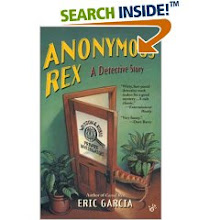
Reading Eric Garcia for Christmas
Click Here to Purchase Anonymous Rex
Vinegar Hill

Reading A. Manette Ansay for Christmas
Click Here to Purchase Vinegar Hill
Nicotine Dreams

Reading Katie Cunningham for Christmas
Click Here to Purchase Nicotine Dreams
Junot Diaz
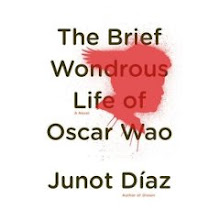
Pulitzer Prize Winner!!!
Click Here to Purchase The Brief Wondrous Life of Oscar Wao
Edwige Danticat

New Year's Reading
Click Here to Purchase Brother I"m Dying
Greed
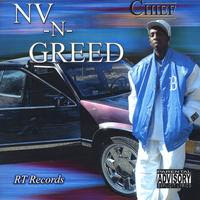
This Brother Is Scary Good
Sweet Music
One More Chance
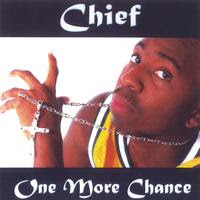
The genius Is At It Again/The Rapper CHIEF aka Sherwin Allen
Sandrine's Letter
Check out Sandrine's Letter To Tomorrow. You will like it, I insist.
Sandrine's Link
Cool Sites
- Akashic Books
- All or Nothing (My Other Blog)
- Asili The Journal
- Best Gamblling News Site
- Black Star Review
- Book Remarks
- Booktour.com
- Carolina Wren Press
- Click Here for Some Pretty Good Writing Contests
- Dedra Johnson
- Enrico Theoc
- Felicia Luna Lemus
- Florida Book Review
- Foreword Magazine
- Gambling Is Linked to Suicide
- Gambling Is Not Linked to Suicide
- Gaming Law Review
- Gene Durnell's The Thinking Journalist
- Gene Durnell's The Thinking Journalist
- Geoffrey Philp's Blog
- Get Chief's CDs on CD Baby
- Getting Past Gambling
- Gonzalo Barr's Blog
- Good Reads
- Hallema's Homepage
- Help With Gambling Addiction
- Jeremy Shipp's Website
- John Dufresne's Blog
- Leonard Nash Homepage
- Links to Seminole Casinos in Florida
- Martha Frankel's Homepage
- Michael A. Gonzales
- Miss Snark/ An Agent Gives Great Publishing Advice
- More Addiction Help
- No Gambling.com
- Pat MacEnulty
- ScrewIowa.com
- St. Louis Rams, The Greatest Show on Turf
- Suicide reference library
- T Cooper
- University of Florida
- Vicki Hendricks
- Walter Jacobs's Blog
- Writers Who Read
- Writing with Celia

All or Nothing

Editorial Reviews of All or Nothing
New York Times--". . . a cartographer of autodegradation . . . Like Dostoyevsky, Allen colorfully evokes the gambling milieu — the chained (mis)fortunes of the players, their vanities and grotesqueries, their quasi-philosophical ruminations on chance. Like Burroughs, he is a dispassionate chronicler of the addict’s daily ritual, neither glorifying nor vilifying the matter at hand."
Florida Book Review--". . . Allen examines the flaming abyss compulsive gambling burns in its victims’ guts, self-esteem and bank accounts, the desperate, myopic immediacy it incites, the self-destructive need it feeds on, the families and relationships it destroys. For with gamblers, it really is all or nothing. Usually nothing. Take it from a reviewer who’s been there. Allen is right on the money here."
Foreword Magazine--"Not shame, not assault, not even murder is enough reason to stop. Allen’s second novel, All or Nothing, is funny, relentless, haunting, and highly readable. P’s inner dialogues illuminate the grubby tragedy of addiction, and his actions speak for the train wreck that is gambling."
Library Journal--"Told without preaching or moralizing, the facts of P's life express volumes on the destructive power of gambling. This is strongly recommended and deserves a wide audience; an excellent choice for book discussion groups."—Lisa Rohrbaugh, East Palestine Memorial P.L., OH
LEXIS-NEXIS--"By day, P drives a school bus in Miami. But his vocation? He's a gambler who craves every opportunity to steal a few hours to play the numbers, the lottery, at the Indian casinos. Allen has a narrative voice as compelling as feeding the slots is to P." Betsy Willeford is a Miami-based freelance book reviewer. November 4, 2007
Publisher’s Weekly--"Allen’s dark and insightful novel depicts narrator P’s sobering descent into his gambling addiction . . . The well-written novel takes the reader on a chaotic ride as P chases, finds and loses fast, easy money. Allen (Churchboys and Other Sinners) reveals how addiction annihilates its victims and shows that winning isn’t always so different from losing."
Kirkus Review--"We gamble to gamble. We play to play. We don't play to win." Right there, P, desperado narrator of this crash-'n'-burn novella, sums up the madness. A black man in Miami, P has graduated from youthful nonchalance (a '79 Buick Electra 225) to married-with-a-kid pseudo-stability, driving a school bus in the shadow of the Biltmore. He lives large enough to afford two wide-screen TVs, but the wife wants more. Or so he rationalizes, as he hits the open-all-night Indian casinos, "controlling" his jones with a daily ATM maximum of $1,000. Low enough to rob the family piggy bank for slot-machine fodder, he sinks yet further, praying that his allergic 11-year-old eat forbidden strawberries—which will send him into a coma, from which he'll emerge with the winning formula for Cash 3 (the kid's supposedly psychic when he's sick). All street smarts and inside skinny, the book gives readers a contact high that zooms to full rush when P scores $160,000 on one lucky machine ("God is the God of Ping-ping," he exults, as the coins flood out). The loot's enough to make the small-timer turn pro, as he heads, flush, to Vegas to cash in. But in Sin City, karmic payback awaits. Swanky hookers, underworld "professors" deeply schooled in sure-fire systems to beat the house, manic trips to the CashMyCheck store for funds to fuel the ferocious need—Allen's brilliant at conveying the hothouse atmosphere of hell-bent gaming. Fun time in the Inferno.
Florida Book Review--". . . Allen examines the flaming abyss compulsive gambling burns in its victims’ guts, self-esteem and bank accounts, the desperate, myopic immediacy it incites, the self-destructive need it feeds on, the families and relationships it destroys. For with gamblers, it really is all or nothing. Usually nothing. Take it from a reviewer who’s been there. Allen is right on the money here."
Foreword Magazine--"Not shame, not assault, not even murder is enough reason to stop. Allen’s second novel, All or Nothing, is funny, relentless, haunting, and highly readable. P’s inner dialogues illuminate the grubby tragedy of addiction, and his actions speak for the train wreck that is gambling."
Library Journal--"Told without preaching or moralizing, the facts of P's life express volumes on the destructive power of gambling. This is strongly recommended and deserves a wide audience; an excellent choice for book discussion groups."—Lisa Rohrbaugh, East Palestine Memorial P.L., OH
LEXIS-NEXIS--"By day, P drives a school bus in Miami. But his vocation? He's a gambler who craves every opportunity to steal a few hours to play the numbers, the lottery, at the Indian casinos. Allen has a narrative voice as compelling as feeding the slots is to P." Betsy Willeford is a Miami-based freelance book reviewer. November 4, 2007
Publisher’s Weekly--"Allen’s dark and insightful novel depicts narrator P’s sobering descent into his gambling addiction . . . The well-written novel takes the reader on a chaotic ride as P chases, finds and loses fast, easy money. Allen (Churchboys and Other Sinners) reveals how addiction annihilates its victims and shows that winning isn’t always so different from losing."
Kirkus Review--"We gamble to gamble. We play to play. We don't play to win." Right there, P, desperado narrator of this crash-'n'-burn novella, sums up the madness. A black man in Miami, P has graduated from youthful nonchalance (a '79 Buick Electra 225) to married-with-a-kid pseudo-stability, driving a school bus in the shadow of the Biltmore. He lives large enough to afford two wide-screen TVs, but the wife wants more. Or so he rationalizes, as he hits the open-all-night Indian casinos, "controlling" his jones with a daily ATM maximum of $1,000. Low enough to rob the family piggy bank for slot-machine fodder, he sinks yet further, praying that his allergic 11-year-old eat forbidden strawberries—which will send him into a coma, from which he'll emerge with the winning formula for Cash 3 (the kid's supposedly psychic when he's sick). All street smarts and inside skinny, the book gives readers a contact high that zooms to full rush when P scores $160,000 on one lucky machine ("God is the God of Ping-ping," he exults, as the coins flood out). The loot's enough to make the small-timer turn pro, as he heads, flush, to Vegas to cash in. But in Sin City, karmic payback awaits. Swanky hookers, underworld "professors" deeply schooled in sure-fire systems to beat the house, manic trips to the CashMyCheck store for funds to fuel the ferocious need—Allen's brilliant at conveying the hothouse atmosphere of hell-bent gaming. Fun time in the Inferno.
At Books and Books
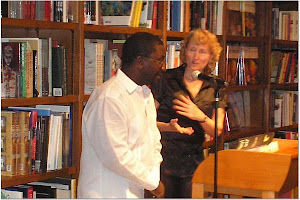
Me And Vicki at Our Reading
Bio
Preston L. Allen is the recipient of a State of Florida Individual Artist Fellowship in Literature and the Sonja H. Stone Prize in Fiction for his short story collection Churchboys and Other Sinners (Carolina Wren Press 2003). His works have appeared in numerous publications including The Seattle Review, The Crab Orchard Review, Asili, Drum Voices, and Gulfstream Magazine; and he has been anthologized in Here We Are: An Anthology of South Florida Writers, Brown Sugar: A Collection of Erotic Black Fiction, Miami Noir, and the forthcoming Las Vegas Noir. His fourth novel, All Or Nothing, chronicles the life of a small-time gambler who finally hits it big. Preston Allen teaches English and Creative Writing in Miami, Florida.